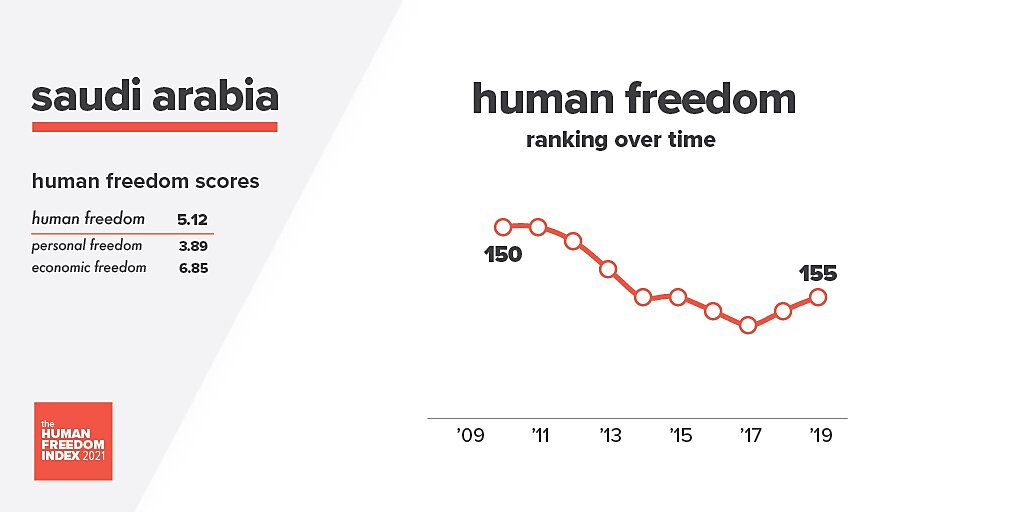Ahead of his trip to the Middle East, President Joe Biden wrote an op-ed in the Washington Post explaining his reasons for traveling to the region—specifically, Saudi Arabia. The President is going to ask Saudi Arabia for help with oil prices and, in exchange, possibly resume sales of offensive weapons to Riyadh that he halted early in his administration. Unfortunately, the reality is that such a decision would prove costly.
Biden notes that his tough approach to Saudi Arabia—including revealing the intelligence report on the Khashoggi murder, issuing new sanctions on those involved in Khashoggi’s killing, and rejecting 76 visas for Saudis involved in harassing dissidents abroad—is working. The President continues writing that these moves have “reversed the blank-check policy” the country inherited from the Trump administration.
One would assume that, if this toughness is working, the United States would see a regime sharing U.S. security interests while also showing basic human rights considerations. Saudi Arabia fails on both counts. From a security standpoint, Riyadh continues its involvement in Yemen and refuses to work alongside Washington to diplomatically stop the Ukraine crisis.
Biden only briefly hand-waves at human rights considerations in Saudi Arabia. He notes that “there are many who disagree with my decision to travel to Saudi Arabia,” but clarifies that his “views on human rights are clear and longstanding” and that his job is to “keep our country strong and secure.”
Biden’s views on human rights have been anything but clear. While condemning Iran for its numerous human rights violations, the President has remained silent on those in Saudi Arabia. If human rights in the country have improved, then Biden’s strategy is perhaps working. The problem is that this is not the case.
Between 2010 through 2019, the Human Freedom Index—published by the Cato Institute and Fraser Institute—finds that Saudi Arabia’s human freedom ranking decreased five spots. Per this index, between 2017 and 2019, the only country to have lower degrees of freedom of expression than Saudi Arabia every single year is Syria, with Bahrain also scoring lower in 2016 and 2015. Additionally, between 2015 and 2019, Syria is the only country that scores lower than Saudi Arabia in freedom of association, assembly, and civil society every year except in 2018, in which Bahrain also shows lower levels of freedom of association than Saudi Arabia
Making matters worse, one of Biden’s concessions will be a resumption of offensive weapons sales to Saudi Arabia. Riyadh has used U.S. weapons to target and kill innocent Yemeni civilians while protecting its homeland since the Houthis took over Sanaa in 2009. As I note in my recent op-ed for the New York Daily News:
A recent report details the exact level of U.S. commitment. The Armed Conflict Location and Event Data Project data suggests that the U.S. has armed the Saudi coalition in Yemen since 2009 and shows no signs of leaving. The United States continues to train the Saudi coalition on how to use American weaponry. The U.S. has participated in joint exercises with at least 80% of Saudi air squadrons in Yemen. Making matters worse, at least four of these trainings took place on American soil.
Washington has delivered an astounding number of weapons to Saudi Arabia since 2009, with over $23 billion in weapons delivered and Congress notified of over $140 billion worth. In essence, the United States has been sending weapons for Riyadh to use since this conflict began seven years ago, the end of the ongoing conflict is nowhere in sight, and Saudi Arabia’s human freedom is no better than it was when the conflict began.
Appeasing Saudi Arabia is a losing strategy that will only force Washington to further engage in a war that does not benefit U.S. interests while supporting an oppressive, authoritarian regime.
In 2017, Saudi Arabia quite literally rolled out the red carpet for Trump when he visited the country. One should ask if Biden will receive the same courtesy. Rather than learning from history, Biden seems convinced that the policies from the Obama and Trump administrations will finally work now that he is the one negotiating the deal.
Instead of Biden “reversing the blank-check policy,” the President’s attitude towards Saudi Arabia reeks with the same arrogance as his predecessors’.

